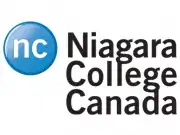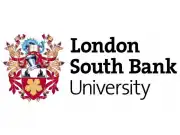Study programs in Education
- Advantages of Studying in Education
- Formats and Degree Levels in Education
- Top Universities in Education
- Additionally Recommended Universities in Education
- How to Apply for Programs in Education
- Language of Instruction and Preparation for Programs in Education
- Tuition Fee for Study Programs in Education
- Scholarships and Grants for Programs in Education
- Career Prospects After Studying in Education
- Is It Worth Studying in Education
- Frequently Asked Questions

Certificate - Pre-Community Services
Niagara College InternationalDo you enjoy assisting others and are interested in a career in community service but haven't decided on a specialty?
You have determined your career goal as a Pre-Community Services graduate and are well-prepared for academic success in postsecondary community service programs at Niagara…

Diploma - Early Childhood Education
Niagara College InternationalDo you care about education and the importance of fostering development in children's early years?
As an Early Childhood Educator, you promote early childhood learning in a variety of educational programs and settings.
Highlights
- With course work,…

Diploma - Educational Assistant and Adult Supports
Niagara College InternationalAre you driven to make a difference in the lives of people with special needs and to ensure that everyone achieves their full potential?
In this unique dual-focused program, you will be prepared for two career paths. You are skilled and compassionate in supporting students and adults with…

Diploma - Early Childhood Education
George Brown College of Applied Arts and TechnologyOne can earn a diploma in two years from George Brown College by enrolling in the Early Childhood Education (C100) program.
You will study the holistic development of a variety of age groups, including:
- infants (from six weeks)
- toddlers
- preschoolers
- school-aged…

Bachelor of Arts (Hons) - Education
London South Bank University LSBUExamine the foundations of education in modern society from the perspectives of the person, the nation, and the world.
Human learning processes and educational obstacles across a range of ages and learning communities will be examined along with education's relevance to social justice, including…

Certificate - English for Academic Purposes
Humber College Institute of Technology & Advanced Learning, Toronto, CanadaThe English for Academic Purposes (EAP) certificate program at Humber is a full-time, intensive academic pathway program. The program combines academic focus with reading, writing, listening, and speaking skills. You will also gain study skills and customized tutoring assistance. The curriculum is…

Bachelor of Arts (Hons) - Primary Teacher Education
Oxford Brookes UniversityThis course prepares you to teach. We've always trained teachers. Our alumni are passionate, skilled, and creative.
Oxford Brookes graduates inspire thousands of youngsters and lead in hundreds of schools across Oxfordshire and beyond. Our grads can handle any classroom, say school authorities.…

Bachelor of Arts - Education with an Emphasis in Art
Webster UniversityInquiry and scholarship-based pedagogy will be demonstrated by education candidates in their application process.
Effective educational practices based on research and theory will be supported by education candidates' use of multiple assessment and instructional strategies.
As…

Bachelor of Arts - Education with an Emphasis in Elementary Education
Webster UniversityKnowledge of the subject, knowledge of the learner, and knowledge of pedagogy will be demonstrated by education candidates.
To support effective educational practices based on research and theory, education candidates will utilize multiple assessment and instructional strategies.
Educators…

Bachelor of Arts - Education with an Emphasis in Middle School
Webster UniversitySubject matter knowledge, knowledge of learners, and pedagogical know-how based on research will be demonstrated by education candidates.
To support effective educational practices based on research and theory, education candidates will employ multiple assessment and instructional strategies.
As…
Advantages of Studying in Education
Study programs in Education prepare students for work in teaching, pedagogy, management of educational organizations, and development of educational policy. This is one of the most flexible and significant fields, as education directly affects the development of society and the economy.
Key advantages:
- International demand. Qualified teachers, tutors, and methodologists are needed in all countries.
- Flexibility of the profession. Graduates can work in schools, universities, the non-profit sector, corporate structures, as well as in the EdTech field.
- High social importance. Work in education allows you to influence the development of entire generations.
- Diversity of career paths. After obtaining a degree, you can develop in teaching, management, or research activities.
- International recognition of diplomas. Graduates are in demand in international schools and educational projects.
Education is not only classical teaching. It is knowledge management, development of methodologies, implementation of innovations, and creation of effective educational systems.
Formats and Degree Levels in Education
Programs in the field of education are available at all levels:
- Bachelor’s. Duration – 3–4 years. The main focus is on pedagogy, learning psychology, teaching methodology, digital educational technologies.
- Master’s. 1–2 years, advanced preparation in a specific area: educational management, educational research, inclusive learning, international education.
- Doctorate (PhD). 3–5 years, aimed at research and development of new teaching methods and educational models.
- Certification programs. Short-term courses for professional retraining and skill enhancement.
Popular directions: pedagogy, educational leadership, learning psychology, inclusion, distance learning, educational technologies.
Top Universities in Education
| University | Program | Tuition fee per year for international students | Comment |
|---|---|---|---|
| University of Cambridge | Education | from 28 000 GBP | One of the leaders in pedagogical research |
| University of Oxford | Education | from 30 000 GBP | High QS and THE rankings, strong research base |
| Harvard University | Education | from 55 000 USD | Center of innovative approaches to learning |
| University of Melbourne | Education | from 45 000 AUD | Strong programs in educational leadership |
| University of Toronto | Education | from 45 000 CAD | One of the largest faculties of education in the world |
Additionally Recommended Universities in Education
| University | Program | Tuition fee per year for international students | Comment |
|---|---|---|---|
| UE (University of Europe for Applied Sciences) | Education | from 11 000 EUR | Focus on modern pedagogical practices |
| BSBI (Berlin School of Business and Innovation) | Educational Management | from 9 000 EUR | Practice-oriented approach |
| London South Bank University | Education Studies | from 14 000 GBP | Popular choice among international students |
| Niagara College | Education | from 20 000 CAD | Opportunities for internships in educational institutions |
| Wittenborg University | Education and Training | from 12 000 EUR | Applied learning in the field of education |
How to Apply for Programs in Education
The application process for programs in Education usually includes:
- Collecting documents:
- Passport with sufficient validity period.
- High school certificate or diploma with an academic transcript of grades.
- English language proficiency certificate (IELTS, TOEFL, Duolingo).
- Motivation letter, recommendations, if required – portfolio of teaching experience.
- Registration on the university website and submission of the application.
- Passing additional tests or an interview. Some universities conduct internal exams or interviews to assess communication skills and motivation.
- Receiving an offer and obtaining a student visa. It is important to apply in advance, as competition for prestigious educational programs can be high.
Language of Instruction and Preparation for Programs in Education
The main language of instruction in most programs is English. In some countries, programs are available in the national language with prior language preparation.
Preparatory programs:
- Foundation – adaptation to academic and language standards.
- Pre-Education Program – courses in pedagogy and learning psychology.
- Summer courses – preparation for studying in an international environment.
Average tuition fee for preparatory programs – from 5 000 to 15 000 USD per year.
Tuition Fee for Programs in Education
The average tuition fee depends on the region:
- Europe – from 5 000 to 18 000 EUR per year
- United Kingdom – from 14 000 GBP per year
- USA – from 30 000 USD per year
- Canada – from 15 000 CAD per year
- Asia – from 7 000 USD per year
Additional annual expenses:
- Accommodation – from 6 000 to 12 000 USD
- Food – from 2 000 to 5 000 USD
- Study materials – from 1 000 USD
- Insurance and transport – from 1 000 USD
To obtain a student visa, it is necessary to confirm the availability of funds covering tuition and living expenses for the entire period of study.
Scholarships and Grants for Programs in Education
International students can receive financial support based on various criteria:
- Academic scholarships – for high academic performance.
- Financial aid – for students with limited financial resources.
- Motivational scholarships – consider leadership qualities, social activity, pedagogical potential.
- University grants – may cover part or all of the tuition fee.
- Assistantships and research positions – for senior students and Master’s.
For students from the CIS and India, support programs are available in a number of universities in Europe, Asia, and Canada. Scholarship applications must be submitted in advance, usually 6–9 months before the start of studies.
Career Prospects After Studying in Education
The field of education offers a wide selection of employment directions:
- Teaching and tutoring. Work in schools, universities, language centers.
- Educational management. Management of educational institutions, departments of education, EdTech projects.
- Development of curricula and methodologies. Positions in publishing houses, NGOs, and government structures.
- International organizations. Graduates are in demand in private schools and universities worldwide.
Major employers in the education field: Pearson, EF Education, Cambridge Assessment, various universities and private schools. Graduates are also in demand in EdTech companies.
Is It Worth Studying in Education
Studying in the field of education is a stable and promising investment in the future. Graduates receive not only professional knowledge but also communication, leadership, and management skills.
Advantages of studying abroad:
- international recognition of the diploma,
- flexible career prospects,
- possibility to work in different countries,
- development of intercultural competence.
Frequently Asked Questions
1. How long does study last in programs in Education?
Bachelor’s lasts 3–4 years, Master’s – 1–2 years, Doctorate – from 3 years.
2. What are the admission requirements for programs in Education?
A passport, school certificate, English language certificate, and documents on achievements or teaching experience are required.
3. How much is the tuition fee for programs in Education?
Tuition fee varies from 5 000 to 30 000 USD per year depending on the country.
4. Are there scholarships for programs in Education?
Yes, academic and motivational scholarships, university grants, and assistant positions are available.
5. Where do graduates of programs in Education work?
Graduates find employment in schools, universities, international educational centers, and EdTech companies.